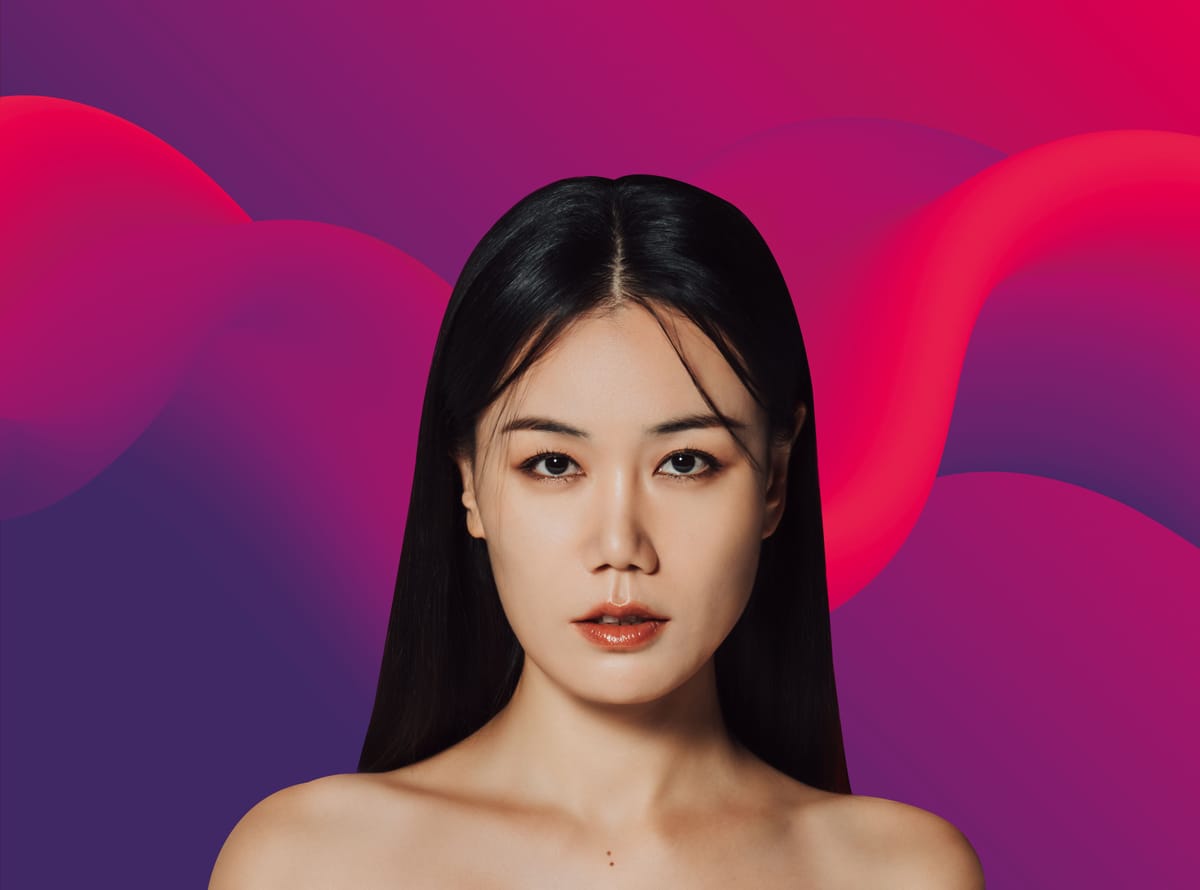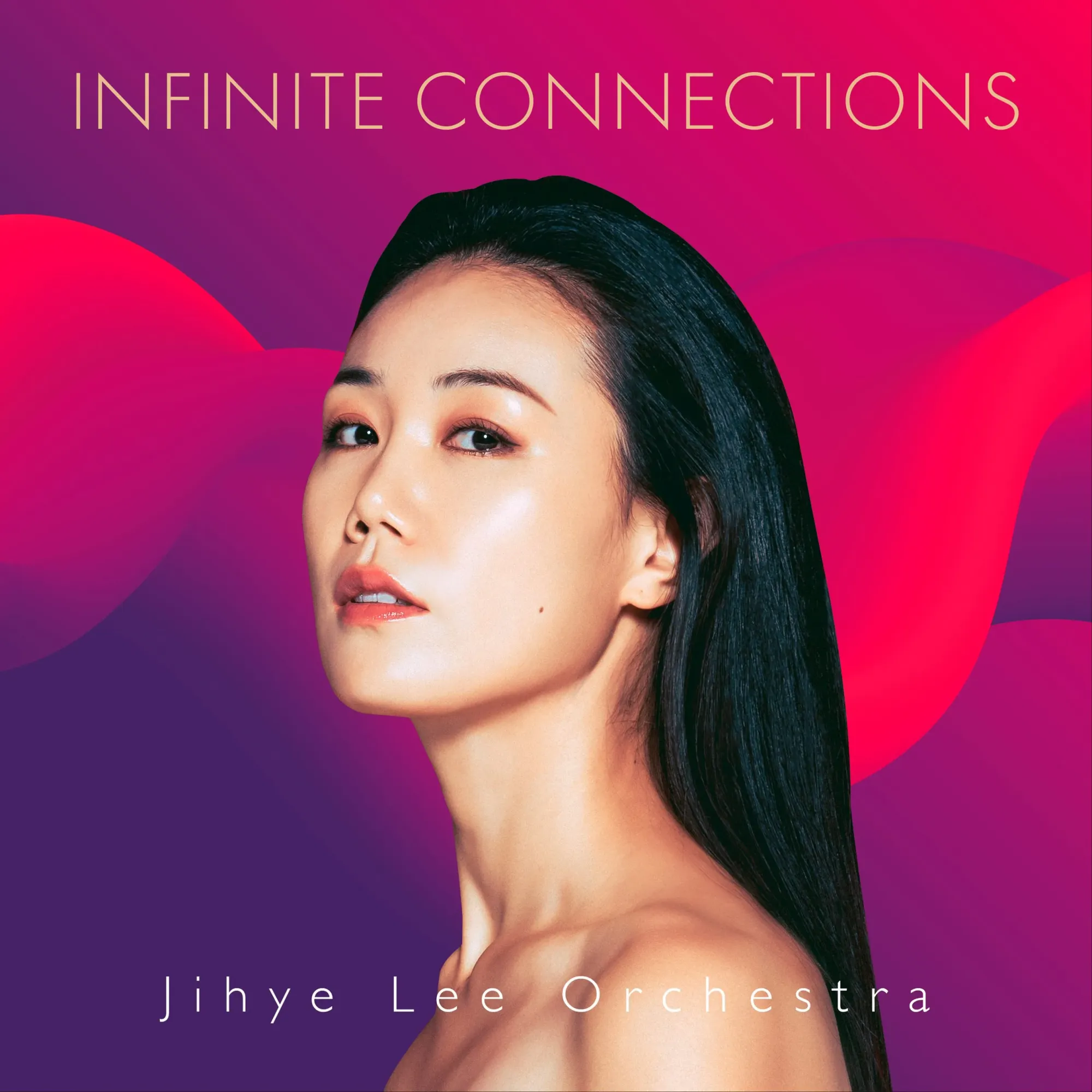Jihye Lee: exploring her identity in 'Infinite Connections'

Among the many possibilities that exist along the path of introspection, one is crucial for the creative process: defining the inner voice. Confronting the past helps control the future, master the present, and, most importantly, define identity. Those who came before you navigated these introspections, and those who come after will continue the journey. History is cyclical, as long as connections are made.

This philosophy resonates deeply with the composer and conductor Jihye Lee, whose latest album, Infinite Connections, embodies this journey of introspection. "As a composer and artist, my life is led by a bigger universe guiding me to create certain projects. Some years ago, I started to think about my identity: my roots, my ancestors, and Korean traditional music; then, after the pandemic, I had more questions about my past." Thousands of kilometers away and in a different context from her childhood, Lee began to explore the old days and relive them through musical language, "I realized the strongest connection I have is that I'm a daughter of my mom, my mom is my grandmother's daughter, and so on the line. That led me to become very interested in Korean folk music."
In the search for meaning, Jihye reconnected with the music of her ancestors and drew a parallel line so her orchestra could incorporate these new sounds into the repertoire. "All the music I composed for Infinite Connections is paired with a Korean traditional rhythm set. I took inspiration from folk rhythms, thinking that the rhythmic figures in Korean music would be the most interesting for jazz listeners."
The guiding force propelling Lee to compose for a big band is the one that reminded her that the past is just a memory, while the present relentlessly moves forward. "During the time I was having all these thoughts about myself, my family, and my Korean heritage, my grandma had a little bit of dementia and then suddenly died, which was very devastating," she shares. "My mom was in a lot of pain for a year, and in 2022, about 13 months after my grandmother's passing, she suddenly had a brain stroke. My family issues and musical interests made me think I should produce this project with specific messages."
Surrender is not abandoning the project, it is accepting the present to plunge into the creative process. "I wanted a clear concept of what I wanted to say, and identify the musical elements that supported that idea." She elaborates, "After understanding the big picture, I found the musical equivalent to express those thoughts. I always go to the piano to find notes and harmonies; I never approach thinking, Oh, this harmony is cool. I like to play the game of asking, What's the story? What do I want to talk about? What's my inspiration?"
Under that premise, it is possible to know that her great inspiration was Born In 1935. "I started composing it around May or June, and my grandmother passed away that same year on Christmas Eve. It was another coincidence—like, I was writing for my grandmother, and then she passed away. I was thinking about her life. She became an orphan and lived with relatives who weren't nice to her. She had to go through many hardships: wars, Japanese colonization, poverty, and more." During seven minutes, the orchestra takes us on a journey through a life marked by dynamism, "I thought about her as a naive, innocent girl born to enjoy life. But as life continued it got darker, until a storm came upon without her will. She wasn't ready for it, but it happened. That's why the song starts with a pretty melody and then gets dramatic, with an emotional turmoil that represents her life. The ending piano reflects her transcendence as she passes away."
One of the Korean music elements is that it gets faster. In Korea, we say Bballi bballi, which means Hurry hurry. We never really relax; that's the mentality we have.
The paradox of duality goes beyond the blending of musical genres; it's present in her own identity: from a culture where silence prevails to a musical career where sound is exuberant. "That was one of the biggest problems to solve when I had to clarify the concept of this album. Korean music can be exciting because we have lots of percussion: however, we don't have harmony. Our emotional expression is subtle and reserved." Imagine the cultural shock of an Eastern student walking in the corridors of Berklee while having her first encounter with the vibrations of a big band. "My grandmother always laughed without sound. She used to say, 'I was told I can't have my voice outside of the walls of my house.' Without music, who am I? Maybe I am representing all Asian women, as a big band leader making somewhat loud music to speak up. Perhaps I am representing my ancestors who couldn't laugh out loud. I'm proud to be a big band composer and fortunate to have all my band members."
Her compositions don't need words to understand her connections. The musical elements never remain static, the improvisation allows a wide variety of emotional tones. "As a jazz composer who writes for 17 to 18 people, I see improvisation as another collaboration between the composer and the improviser. I invite the soloists into my world and allow them to do whatever they want within that universe. I've already established the concept and the storyline. I give them authority to compose in real-time within my canvas."
Her hands float in the air while Korean percussions intertwine with traditional jazz brass. The questions she asked herself long before the pandemic have been answered. After her catharsis, new doubts arise: what colors will we discover in her next album? In the future, will she sing these stories and thus bring K-jazz to life? By confronting her past, Jihye Lee has developed her future and mastered her present.